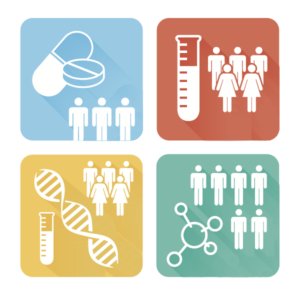Why Every Phase 1 Clinical Study Needs a “Protocol Champion”

The clinical drug development process is challenging and time-consuming and requires the collaborative efforts of a multidisciplinary team of experts over a prolonged period of time. Accordingly, one of the challenges associated with clinical studies, including Phase 1 studies, is ensuring scientific and project management continuity.
Partnering with an experienced clinical research organization (CRO) with expertise in clinical drug development can optimize clinical studies and be of tremendous value to clients. To warrant the continuity and scientific integrity of clinical drug development programs, CRO BioPharma Services, Inc. has developed the concept of “protocol champions” who are clinical pharmacologists shepherding a clinical protocol from its design until study completion and data reporting.
The Role of Protocol Champion in Clinical Drug Development Explained
As protocol champions, BioPharma’s clinical pharmacologists participate in all aspects of study design and execution and data reporting. They join a study from its initial stages and are involved in developing a study protocol, statistical analysis plan (SAP), and informed consent forms (ICFs). Since protocol champions have a thorough understanding of protocol operationalization and constraints in the clinical setting, they can implement these considerations in the study design. Next, clinical pharmacologists participate actively in protocol preparation or review as well as in monitoring the study and, if required, preparing protocol amendments.
Moreover, through their continued involvement as the study enters the clinic, protocol champions help ensure that the intent and scientific objectives of a study protocol are met. Since it may not always be obvious why a design decision has been made, in operationalizing the protocol, protocol champions can help ascertain that underlying protocol design considerations, such as the prioritization of different endpoints, are implemented.
Throughout the entire clinical study, the full-service CRO’s protocol champions collaborate with other team members to ensure the safety of study participants. Such collaboration is especially important during Phase 1 clinical studies that employ drug candidates with scarce or no human data. In addition, protocol champions are involved in a study’s statistical analysis, data interpretation and reporting, and regulatory aspects.
Since they are involved in all stages and aspects of a clinical study, clinical pharmacologists play a key role as protocol champions in stakeholder communication. They liaise with operational groups to ensure compliance with the required study procedures, clinical feasibility, and appropriate training of clinical staff. Ultimately, protocol champions help ascertain the scientific integrity of the conducted research and the safety of study participants.
As an example of protocol champions’ role in clinical drug development, BioPharma’s Dr. Sofia Raitsin explains how she has efficiently supported a challenging human abuse potential (HAP) study for more than five years. According to Raitsin, the FDA-sponsored study was initially designed to evaluate a drug already on the market. However, multiple versions of the study protocol have been drafted since then because the initial study drug was withdrawn from the market by the manufacturer, and a new study drug with a different mechanism of action was selected.
Throughout the study, BioPharma’s protocol champion built a trusting relationship with all stakeholders and provided a solid understanding of the study thanks to the dedicated and professional work of our clincial pharmacologist. She was also involved in implementing computerized assessments of the drug effects, user acceptance testing of the software, and clinical staff training. Finally, Dr. Raitsin has participated in the SAP preparation, statistical assessment, and study report writing. Overall, her involvement has ensured the continuity of the clinical study, and she has been a valuable resource for all stakeholders.
Providing In-Depth Understanding and Support of Phase 1 Clinical Study Protocols
Clinical trial protocols are complex, and their in-depth understanding is critical for the successful execution of a clinical study. As protocol champions, BioPharma’s clinical pharmacologists accompany the protocol during all stages of a clinical study and work closely with stakeholders; they have an in-depth understanding of the underlying principles and specific characteristics of each study protocol as well as of the study design and objectives. Therefore, they are a resource all teams within the organization can come to. In addition, in the context of a CRO, protocol champions are exposed to a variety of research areas and have a broad skill set.
Protocol champions utilize their knowledge to support all members of a multidisciplinary team and to help them acquire thorough understanding of the study. For example, protocol champions prepare training materials for the clinical team, statisticians, and other team members, as well as for study participants. In this way, they promote the competency and efficiency of all team members and foster the prompt delivery of accurate study results.
Establishing Rapport With Clinical Study Sponsors
Since protocol champions are closely involved in each clinical study stage, they establish a close and trusting relationship with study sponsors. In fact, protocol champions are the second team members who are consistently there for study sponsors in addition to the project director. Project directors typically oversee project logistics and are the first point of contact for study sponsors; however, protocol champions are also available to address any questions or concerns and typically have weekly or bi-weekly calls with sponsors. Thus, they help ensure that the communication with study sponsors is efficient and comprehensive.
The relationship protocol champions establish with study sponsors may help better communicate important considerations on study design. For example, per regulatory standards, each protocol should include sections addressing pharmacokinetic, pharmacodynamic, and safety analyses. The protocol should encompass a high-level analysis plan, whereas the accompanying SAP should comprehensively break the analytical procedures down and should provide detailed guidance on handling samples taken outside the designated time window.
For example, per BioPharma’s practice, the Blood Sampling Time Deviations (BSTD) table records any blood samples taken outside their scheduled times. In coordination, our clinical pharmacologists and pharmacokinetic scientists usually advise study sponsors that samples collected outside the scheduled window should not be considered protocol deviations since pharmacokinetic parameter calculations are based on the actual sampling time recorded in source documents. Furthermore, this approach helps reduce unnecessary workload for clinical staff.
In a recent study, BioPharma’s protocol champion provided guidance on examining a drug candidate’s food effect. Initially, the study sponsor wanted to evaluate the food effect of the drug candidate during dose escalation in a single ascending dose (SAD) study. The protocol champion advised them against using this strategy because there was no supporting information regarding expected drug exposure changes with food intake.
Instead, the protocol champion recommended performing this assessment at the end of the study and at a lower dose to ensure a safety margin. Even though the study sponsor did not initially follow this advice, regulatory authorities later requested the change, and BioPharma’s protocol champion helped revise the protocol accordingly.
Ensuring Impact and Purpose
BioPharma’s clinical pharmacologists, as protocol champions, can help the study team fully understand the study’s aims and objectives. Moreover, through the entirety of their activities, they contribute to the collection and reporting of accurate and reliable results.
Another BioPharma protocol champion, clinical pharmacologist Dr. Vivian Zha, emphasizes this role’s impact on clinical drug development programs by outlining the scientific, clinical, and regulatory perspectives they bring to a study. She explains that, from a scientific standpoint, protocol champions collaborate with pharmacokinetic scientists and investigators to offer input on sample size, safety measures, and pharmacokinetic/pharmacodynamic objectives and endpoints. They also help build protocol flexibility that is at times needed to enable the study sponsor and physicians to modify dose levels and adjust pharmacokinetic and pharmacodynamic time points.
From a clinical perspective, when drafting a protocol, protocol champions ensure that clinical activities are logistically reasonable and, if possible, even give the clinic logistic advantages. Finally, protocol champions bring forward regulatory considerations and ensure that all aspects of a protocol are thought out thoroughly.
Addressing Clinical Trial Amendments and Challenges
The process of clinical drug development is complex and challenging. During early-phase clinical trials, including first-in-human (FIH), SAD, and multiple ascending dose (MAD) studies, the safety of a new drug candidate should be evaluated carefully, and study participants’ safety should be an utmost priority. Protocol champions are aware of the challenges associated with clinical drug development and help address them during study design and protocol writing.
The early stages of planning a clinical trial are critical for its successful execution. If this planning process is not sufficiently thorough, frequent protocol amendments may be required. Protocol champions have extensive experience in protocol development and all aspects of clinical trials and consider as many aspects of a study as possible during the planning phases. Their timely involvement can help eliminate or minimize the need for future protocol amendments. Moreover, as protocol champions monitor study progress, they may note proposed changes to the study conduct or protocol.
How BioPharma Services clinical pharmacologists as protocol champions help overcome clinical trial challenges can be illustrated by a recent FIH study with SAD and MAD regimens, which used a drug candidate administered as a solution. Participants disliked the taste and lingering aftertaste of the solution, which they described as nauseating. Together with the study sponsor and pharmacokinetic team, the protocol champion developed a strategy to clear up the palate of study participants without changing the pharmacokinetic characteristics of the drug and prepared a protocol amendment reflecting this proposed change.
Adding Value for Study Sponsors
Protocol champions are a valuable resource available to study sponsors throughout clinical studies. They complement the roles of project managers and project directors by bringing scientific ownership to projects. In addition, they establish a trusting relationship with clients and are available to address any questions and concerns promptly and efficiently. Thus, protocol champions bring additional value to clinical drug development programs.
Maintaining Scientific Integrity and Providing Expert Input
Even minor deviations in study procedures may lead to profound changes in the study results. Protocol champions are aware of these risks and have ultimate understanding of study design. Further, they have a vested interest in the success of the study and provide support to all teams. Ultimately, protocol champions ensure that the conduct and interpretation of the study move forward, and all clinical team members are appropriately informed and trained. Moreover, they can provide critical scientific input in cases of protocol deviations and clinical challenges. Thus, protocol champions help maintain the scientific integrity of a study.
For example, BioPharma’s protocol champions often provide input on the implementation of blinding and computerized assessments.
Studies on psychedelic drugs pose a particular challenge with respect to blinding due to the drugs’ psychotropic activities and presence of expectancy effects. Protocol champions carefully consider how participants are informed about a study and can offer innovative study design solutions to facilitate blinding.
Computerized assessments may be challenging to design and perform. Various factors should be considered, such as how study participants are seated, ensuring study participants do not talk to each other and have no distractions, selecting the correct visit, and capturing all relevant information. Protocol champions liaise with other team members to appropriately design these assessments and to educate the clinical team on their accurate execution.
Final Stages: Understanding Clinical Drug Development Data
In collaboration with other team members, protocol champions also play an essential role during the backend stages of clinical drug development. Usually, they help review the tables, figures, and listings provided by biostatisticians. Moreover, protocol champions are involved in writing the final clinical study report and ensure that data are represented in a manner that aligns with the study type and is easily understood. Finally, they support the regulatory submission.
Ensure Your Next Phase 1 Study Is a Winning One with BioPharma Services
BioPharma’s protocol champions are experts on study protocols who shepherd a protocol throughout an entire clinical study – from protocol design to data reporting. They bring scientific, clinical, and regulatory perspectives to studies and help maintain their scientific integrity. In addition, they add value for study sponsors, with whom they build rapport and trusting relationships. Moreover, they support internal teams, actively participating in their training and collaborating on the different study aspects.
BioPharma Services is a full-service CRO with niche expertise in Phase 1 clinical trials. Our clinical pharmacologists, or protocol champions, are valuable members of our multidisciplinary team who shepherd study protocols and add value to our clients’ clinical drug development programs.
If you want to work with an innovative and efficient clinical partner to advance your clinical studies, complete the form below to schedule a discovery call with a member of BioPharma’s medical team.
Quick Summary
The main advantages of having a “Protocol Champion” in Phase 1 clinical studies, as described in the blog “Why Every Phase 1 Clinical Study Needs a ‘Protocol Champion’, are:
-
- Continuity and Scientific Integrity: Protocol champions ensure the continuity and integrity of clinical drug development programs. They shepherd the protocol from design to completion, maintaining the scientific objectives and operational considerations.
- Expert Involvement in All Study Phases: These clinical pharmacologists are involved in every aspect of the study, from designing the study protocol and statistical analysis plan to preparing informed consent forms and monitoring study progress.
- Participant Safety: They prioritize the safety of study participants, a crucial aspect in Phase 1 trials where drug candidates often have limited human data.
- Effective Stakeholder Communication: Protocol champions facilitate communication among all stakeholders, ensuring compliance with study procedures and effective training of clinical staff.
- In-Depth Protocol Understanding: They possess thorough knowledge of the protocol’s principles and specific characteristics, aiding in the study’s successful execution.
- Training and Support for Multidisciplinary Teams: They prepare training materials for various team members, promoting efficiency and competency across the team.
- Building Rapport with Study Sponsors: Protocol champions establish a close relationship with study sponsors, providing consistent support and addressing questions or concerns.
- Strategic Study Design Input: They offer critical advice on study design and protocol amendments, considering regulatory standards and practical feasibility.
- Addressing Clinical Trial Challenges: Their extensive experience helps foresee and address potential challenges in clinical trial design and execution, reducing the need for frequent protocol amendments.
- Value Addition for Study Sponsors: By bringing scientific ownership to projects, they add significant value for sponsors throughout the study.
- Ensuring Scientific Integrity and Expert Input: Protocol champions play a crucial role in maintaining the scientific integrity of the study, providing expert input on protocol deviations and challenges.
- Assistance in Final Data Stages: They are involved in reviewing data, writing clinical study reports, and supporting regulatory submissions, ensuring accurate and understandable data representation.



